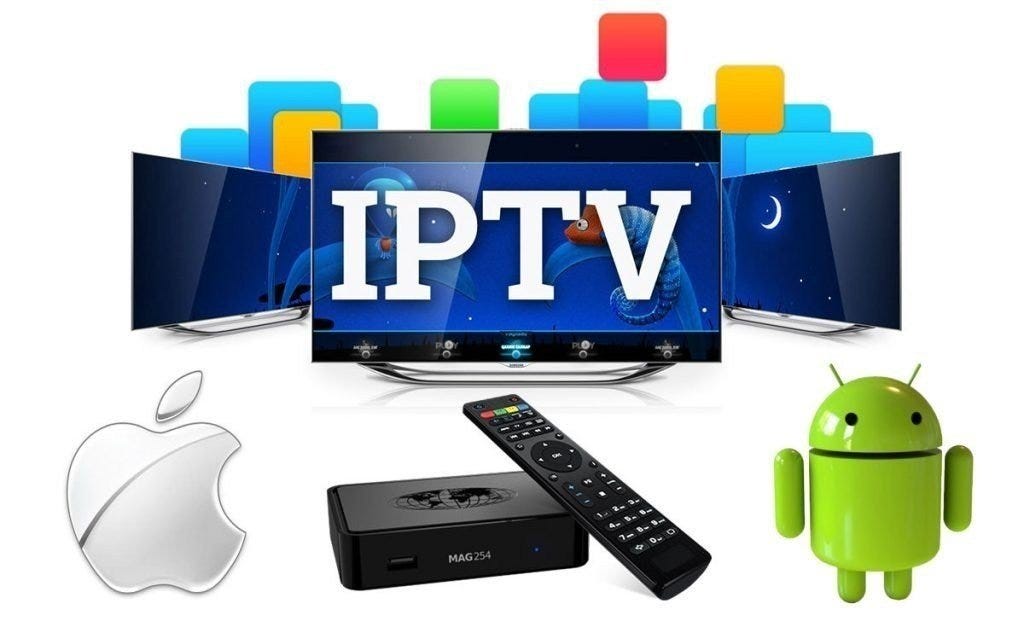In today's rapidly evolving environment, where convenience is essential, the development of media consumption has taken a remarkable shift with the arrival of IPTV. IPTV has revolutionized the way we consume media, allowing us to get our preferred shows, movies, and real-time events from virtually any location. As conventional cable TV gives way to more flexible options, many are discovering the myriad advantages that IPTV services present, making leisure activities both increasingly streamlined but additionally customized to individual needs.
One of the notable advantages of IPTV is its ability to provide a customizable viewing experience. Unlike traditional broadcasting, which frequently comes with a fixed timetable and a limited selection of channels, IPTV enables viewers to choose what they want to watch, when they wish to watch it. This flexibility is particularly appealing in a period when on-demand content has turned into the standard. Furthermore, the combination of various multimedia capabilities, from broadcasting to interactive features, improves the overall media experience, making IPTV a favored choice for numerous consumers.
What is IPTV?
IPTV, or IPTV, is a digital television broadcasting system that utilizes the web to provide content to viewers. Unlike conventional television solutions that rely on satellite or cable systems, IPTV streams film content directly over a high-speed connection. This innovation enables users to view real-time television, movies, and on-demand shows in a far flexible and convenient manner.
One of the key features of IPTV is its ability to provide a wide range of content choices. Users can select from various channels, including regional, countrywide, and global programming. Many IPTV services also provide access to unique content, including original series and films that may not be available on traditional networks. This extensive selection addresses diverse watching preferences and can improve the overall viewing experience.
Another important advantage of IPTV is the interactive capabilities it provides. Viewers can pause, rewind, or skip real-time broadcasts, as well as access video on request at their convenience. This degree of control transforms the way people interact with television content, allowing for a much personalized viewing experience. Overall, IPTV stands for a contemporary evolution in how we consume television, making it an attractive option for many homes.
Benefits of Internet Protocol Television
One notable advantage of IPTV is the versatility it offers viewers. Unlike traditional cable services, IPTV allows subscribers to stream their preferred shows and movies on multiple devices. Whether on abonnement-iptvfrance.fr , mobile device, or cell phone, users can stream content anywhere and anytime. This ease enhances the user experience and fits well with the modern lifestyle, where users are frequently on the move and prefer streaming content on demand.
Another key benefit is the wide selection of content available through IPTV services. Subscribers can pick from a wide array of channels, including global options, specialty channels, and exclusive content not usually found on standard television. This diverse library ensures that there is a selection for all viewers, allowing viewers to try out new categories and find new favorites. Furthermore, many Internet Protocol Television services offer tailored packages, letting subscribers choose and pay only for the programming they desire.

IPTV also often offers enhanced picture and sound quality in contrast to traditional broadcasting methods. With HD and even ultra high-definition (UHD) content readily available, viewers can experience a more engaging experience. Additionally, many Internet Protocol Television platforms include features such as stop, rewind option, and recording functions, adding to enhancing user control over their watching preferences. This mix of quality and functionality makes Internet Protocol Television an appealing choice for anyone looking to enjoy their programming with greater ease and enjoyment.
Comparing Internet Protocol Television with Traditional TV
As we analyze the distinctions comparing IPTV and conventional television, one of the most aspects is the delivery method. Conventional television depends on satellite or cable-based connections, which can restrict access and access based on location-based areas. In, contrast, Internet Protocol Television makes use of internet access, enabling audiences to watch programs from almost anywhere with a consistent internet service. This adaptability gives IPTV a distinct benefit, as users are no longer bound to a specific provider or location.
Additionally, significant distinction exists in the content accessibility and personalization that IPTV provides. Traditional TV often comes with static programming and timing, making it can make it difficult for viewers to find certain shows or uncover new content. IPTV platforms provide on-demand and personalized suggestions, enabling watchers to watch what they want at their convenience. This degree of choice enhances the complete experience, tailoring to individual tastes and ways of living.
In conclusion, cost efficiency plays a key role in the contrast between Internet Protocol Television and traditional TV. Many Internet Protocol Television providers provide competitive pricing with multiple subscription plans, often without the hidden fees commonly associated with cable. In addition, users can avoid lengthy contracts, as numerous service providers offer flexible plans. This affordability, combined with the range of functionalities available, establishes IPTV as an appealing substitute to conventional TV.
